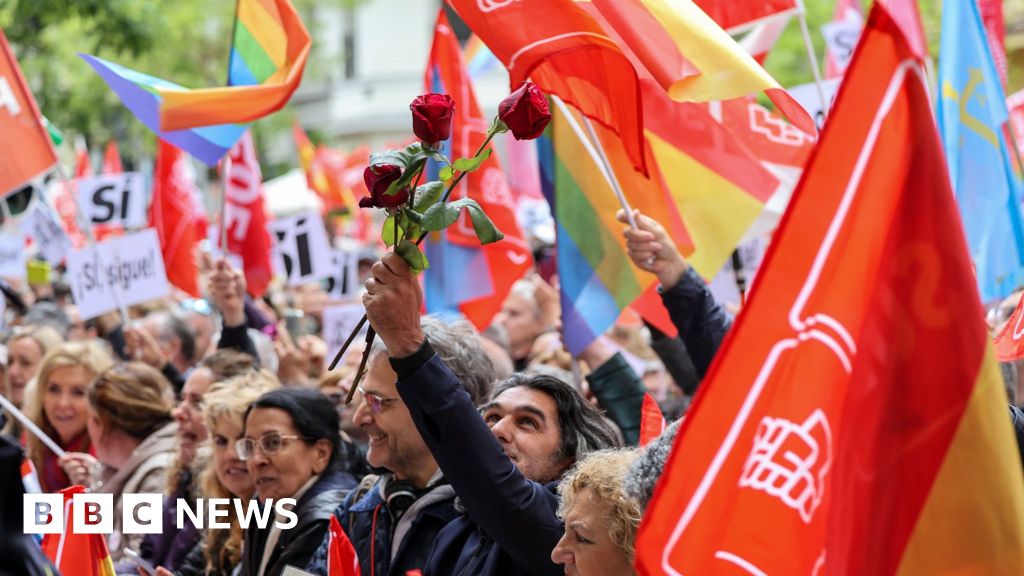[1/3] A general view of a fruit and vegetable stand at a weekly market in Berlin, Germany, March 14, 2020. REUTERS/Annegret Hels
BRUSSELS (Reuters) – Data from the European statistics agency Eurostat showed on Thursday that the eurozone economy was in a technical recession in the first three months of 2023, after downward revisions to growth in both the first quarter and the last quarter of 2022.
Eurostat said in a statement that the gross domestic product of the 20-country eurozone fell 0.1% in the first quarter compared to the fourth quarter of 2022 and increased 1.0% from the previous year.
That compares with rapid estimates for growth of 0.1% and 1.3% published on May 16. Economists polled by Reuters had, on average, expect expansion of zero and 1.2%, respectively.
The revision is mainly due to a second estimate from the German Statistics Office showing that the eurozone’s largest economy was in recession in early 2023.
The contraction in the Irish economy widened to 4.6% from the initial estimate of 2.7%, although this negativity was due to the impact of large multinationals on growth there.
The Eurozone figure for the fourth quarter of 2022 was also lowered to -0.1% from the pre-zero reading.
A recession was expected at the end of last year as the eurozone suffered from soaring energy and food prices and as the post-pandemic spending boom faded, but preliminary estimates indicated that the region avoided it.
And Capital Economics said the outlook for the eurozone economy was weak, and contraction is likely to occur again in the second quarter as the impact of higher interest rates continues.
S&P Global Market Intelligence said it expects a rebound in the second quarter, led by the services sector, followed by a subsequent slowdown and risks of a new recession in late 2023, or early 2024, as tougher financial conditions take effect.
Besides Germany and Ireland, GDP also declined on a quarterly basis in Greece, Lithuania, Malta and the Netherlands.
Eurostat said household spending fell by 0.1 percentage point, public spending by 0.3 points and inventory change by 0.4 points from quarterly GDP. Gross fixed capital formation added 0.1 points and net trade added another 0.7 points as imports fell.
Conversely, employment growth accelerated at the start of 2023, rising to 0.6% in the first quarter from 0.3% in the fourth quarter of 2022, in line with previous estimates. That was an increase of 1.6% year over year.
On a quarterly basis, employment grew in every country except Greece, Lithuania and Slovakia.
For more details on Eurostat data, click:
http://ec.europa.eu/eurostat/news/news-releases
(Reporting by Philip Blenkinsop) Editing by Sharon Singleton
Our standards: Thomson Reuters Trust Principles.

“Typical beer advocate. Future teen idol. Unapologetic tv practitioner. Music trailblazer.”





/cloudfront-us-east-2.images.arcpublishing.com/reuters/RT6JQHLDIFIWNHLEZ46SDYBKPE.jpg)
More Stories
Long lines form and frustration grows as Cuba runs out of cash
The FCC's net neutrality vote affects your internet speed: We explain
Daimler Trucks workers reach agreement and avoid strike threat in North Carolina